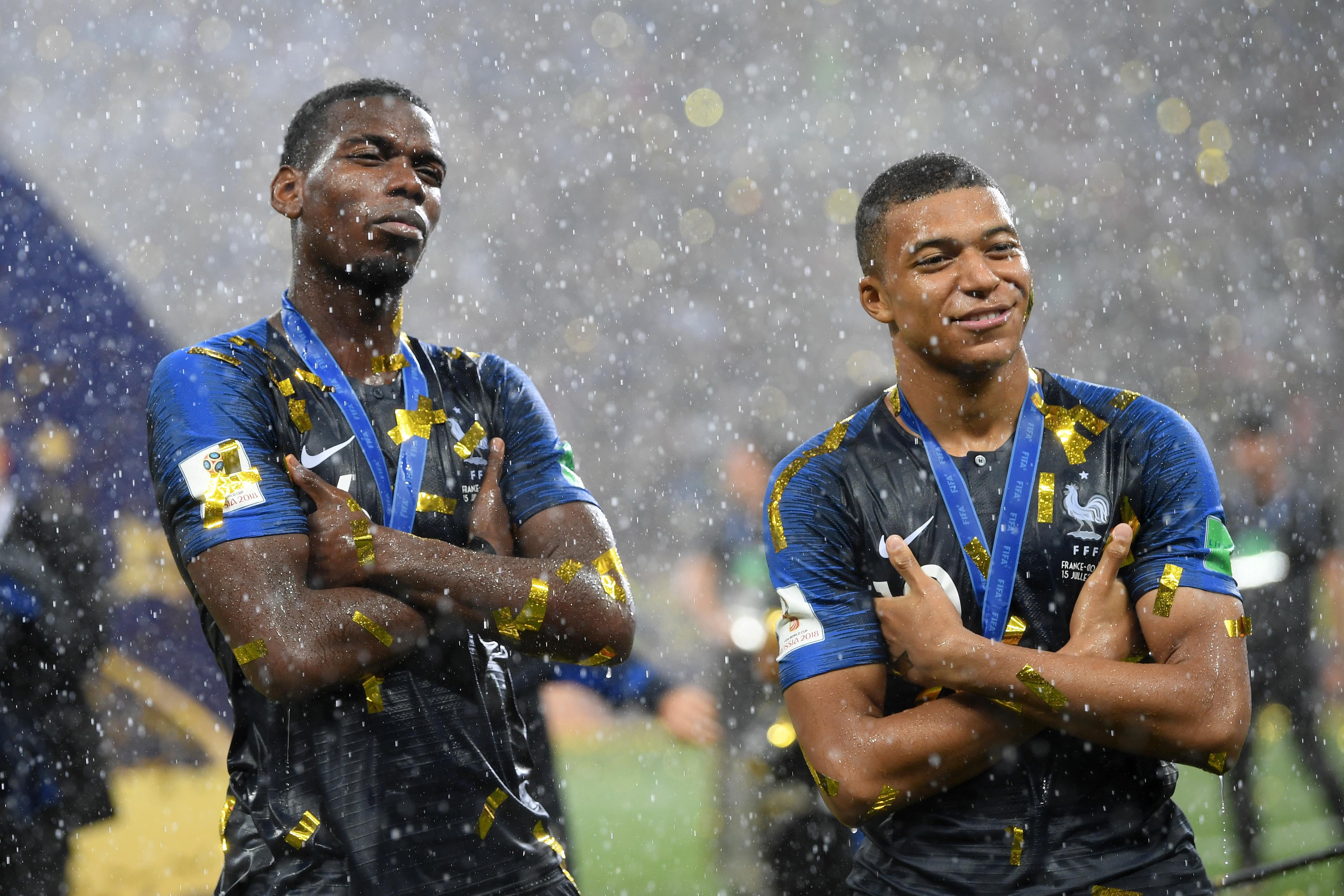If you watched a bunch of France’s games during the 2018 World Cup, the idea that this particular group has been crowned the planet’s best international soccer team might leave you with some questions, among them: Really? These guys?
France, which defeated Croatia 4–2 in Sunday’s final, had a stout defense, yes. It will also be years before anyone is allowed to say anything negative about Kylian Mbappé, who thrilled every time he touched the ball. Olivier Giroud played striker as if he had been dreamed up by Gabriel García Márquez. He was a forward who can only go backwards, a maestro of hold-up play who spent nearly 600 minutes on the field without a shot on target.
But there did seem to be something missing, a not-just-because-they’re-French je ne sais quoi. This was one of the two or three most-talented rosters in the tournament, and one of its youngest, but Les Bleus played many of their knockout round games as if they were underdogs, ceding the ball and the initiative to opponents they perhaps could have overpowered. The phrase “football with the handbrake on” gets tossed around to describe overly conservative teams. France looked like a student driver about to edge out into traffic for the first time with its mom in the passenger’s seat holding onto every handle a modern automobile has to offer. Coach Didier Deschamps didn’t seem to trust his players to play anything but the safest game they knew how.
Croatia, to its credit, seized the initiative on Sunday as if it were a fistful of opponent’s jersey for Mario Mandzukic to grab. The Croatians pressed and hassled the French hard in the game’s opening minutes, fouling three French defenders within five minutes to prevent them from initiating the offense. Mandzukic won the ball repeatedly by backchecking French midfielders who saw nothing but space in front of them. (He would eventually, ridiculously earn Croatia’s second goal via his pressure after French goalkeeper Hugo Lloris dawdled directly into him.)
It was the first time since the Argentina game that the France looked uncomfortable defending in Deschamps’ conservative system, as if it was a bully who just realized the person whose head he’s holding at arm’s length has longer arms than he does. Croatia had success overloading either flank, constantly getting in behind the French fullbacks thanks to combinations between Luka Modric and each side’s winger and fullback. It took advantage of the early yellow card that nullified N’Golo Kanté’s aggression and eventually saw him substituted early in the second half.
And none of it mattered. Croatia never led, despite commanding the game’s momentum for long stretches. The French defense buckled but held against the threat. The decision to ride out the siege proved successful when Les Bleus scored two first-half goals against the run of play, a free kick that skipped off the top of Mandzukic’s head and into the net and a penalty earned after an Ivan Perisic handball. France’s expected goal number after the first half was 0.0, and yet it had scored twice.
Deschamps won the World Cup by stripping the game down to its simplest, most necessary elements, like an architect designing around the structural stability of the triangle. In the French case, the core of the team was the defensive trio of holding midfielder Kanté and center backs Samuel Umtiti and Raphaël Varane. France’s positioning was designed to keep the game in front of these three, where Kanté could clean up on the edge of the box and Umtiti and Varane could smother any chances that leaked through and head away the large number of crosses France’s defensive approach invited.
On the other side of that was Mbappé. While the teenager would show during the tournament how devastating he could be in close quarters, he still thrills most in the open field where he has the room to accelerate like a fighter jet at takeoff. France’s deep block slowly but surely pulled offenses forward so he could find that kind of space, as he did on the third French goal thanks to a beautiful pass from Paul Pogba.
Pogba plays soccer as if he were beating one of the Mega Man games; he has so many weapons in his arsenal that it sometimes takes him a while to find the correct one to use against a given opponent. Against Croatia, he came out for the second half with the clear mission of trying to hit Mbappé every time he won the ball in the middle of the field. Even when the pass wasn’t there, his first look was to that corner of the field. When he finally found it, France put the game away.
That Pogba scored the goal to finish off the play is a just reward. His long pass to start it felt as satisfying as pushing a board through a buzzsaw. It was the kind of thrilling offensive moment this French team feels like it should produce all the time, and it was, appropriately enough, enabled by their conservative defense.
Could France have done more with what it had? Almost certainly, but Deschamps will always have the ultimate rebuttal to questions his style was holding this team back. Maybe, with one World Cup already secured, this French generation and its coach, whether it’s still Deschamps or someone new, will learn to trust more in its own capabilities and open things up a bit more. If Les Bleus figure that out, the best team in international soccer may finally look the part. Best of luck, rest of the world.
